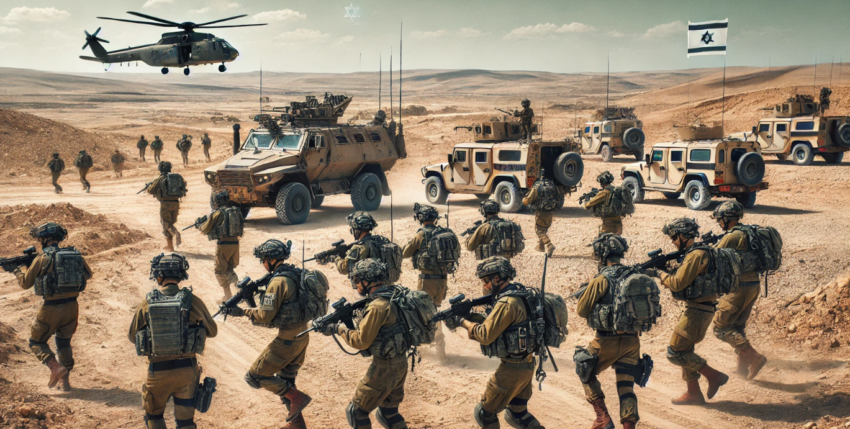| Listen to our audio presentation: History of the US Supreme Court |
Israel is preparing for a limited ground incursion into Lebanon, with the approval of the United States, amid rising tensions in the region. According to reports from BBC, Israeli officials have discussed their strategy with the US, aiming to keep the operation focused on Hezbollah’s elite Radwan unit without a prolonged occupation. The US has advised caution, fearing that a more extensive incursion could trigger a wider regional conflict.
- Israel plans a limited ground incursion into Lebanon, focused on dismantling Hezbollah’s elite Radwan unit.
- The US has supported the incursion but requested it be brief to avoid a wider regional conflict.
- UK Foreign Secretary David Lammy and US Secretary of State Antony Blinken are pushing for an immediate ceasefire and a diplomatic solution.
- Over 136 people have been killed in Lebanon within 24 hours of Israeli airstrikes, while Gaza faces continued attacks.
- Hezbollah remains defiant after the death of leader Hassan Nasrallah, preparing for any Israeli ground invasion.
UK Foreign Secretary David Lammy emphasized the importance of an immediate ceasefire. In his discussion with US Secretary of State Antony Blinken, both agreed that diplomatic solutions are essential to prevent further bloodshed. Lammy also urged British nationals to leave Lebanon due to the escalating situation, with assistance already in place for evacuation efforts.
The potential for miscalculation and unintended consequences is a significant concern, as noted by US State Department spokesman Matthew Miller. He highlighted that while Israel has the right to defend itself, it should do so in a way that minimizes risks. As The Times of Israel reported, the US has urged Israel to limit the scale and duration of the ground incursion to prevent a broader war.
Meanwhile, Al Jazeera reported that the death toll in Lebanon continues to rise, with 136 people killed in Israeli airstrikes in the last 24 hours, including members of the Popular Front for the Liberation of Palestine. Hezbollah’s leadership remains defiant, with deputy chief Naim Qassem asserting that the group is prepared for any Israeli ground invasion. Following the death of Hezbollah leader Hassan Nasrallah, the group has vowed to continue its resistance.
In Gaza, Israeli airstrikes have also intensified, resulting in the deaths of over 41,000 people since the conflict erupted in October. The US remains concerned about the humanitarian impact of these ongoing conflicts and has begun preliminary efforts to provide aid to affected regions.
As the situation develops, diplomatic efforts to secure a ceasefire are gaining momentum, with key global actors pushing for de-escalation. However, the situation remains fragile, with the potential for further escalation if military actions are not carefully managed.

